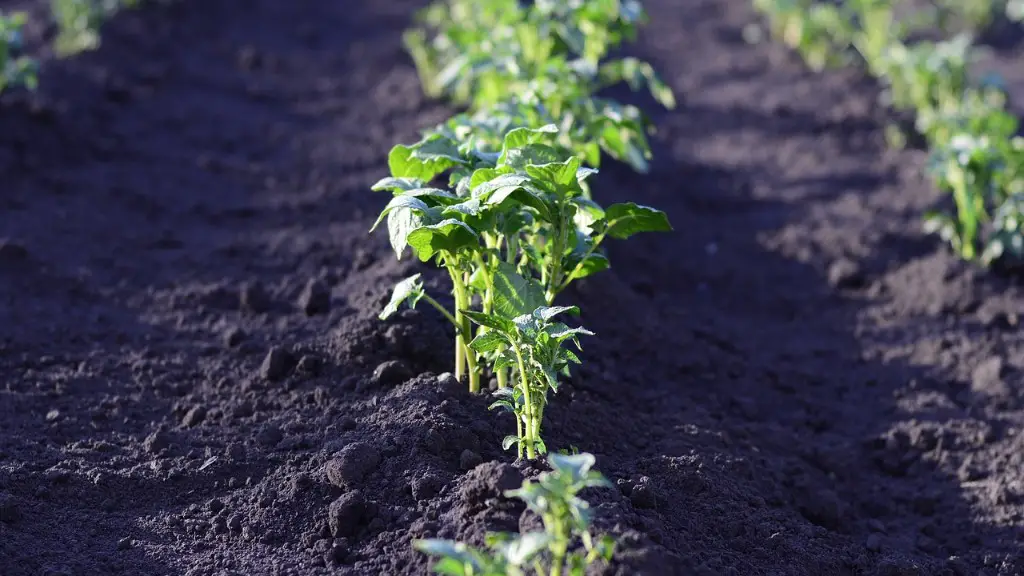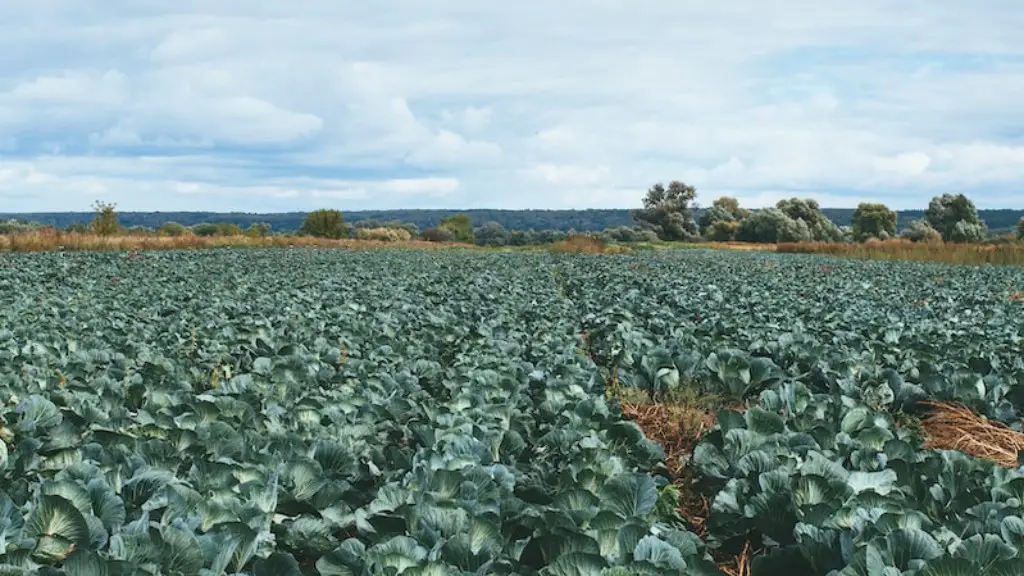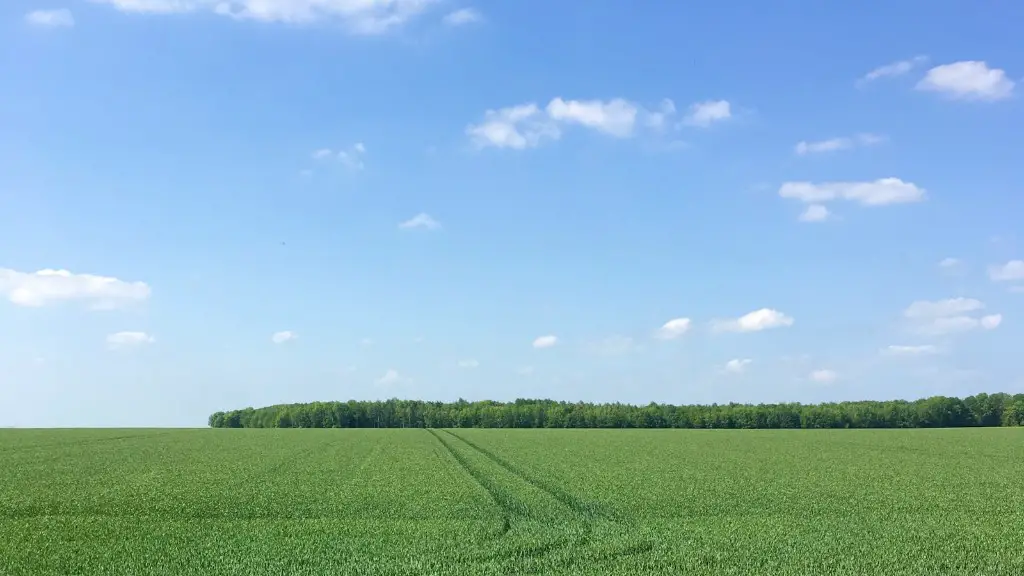Does Bangladesh lease land for agriculture? Yes, it does. Bangladesh is one of many countries in the world that are leasing land for agricultural purposes. Bangladesh is currently agricultural leaseholds which are single kind of agriculturally used lands. The types of agriculturally used lands in Bangladesh include joint ownership, common use, rented lands, and leased lands. The Bangladeshi government leases lands for agricultural purpose mainly from the Department of Agriculture and Forestry under the Agriculture Ministry. Agricultural leases are usually granted to individuals or private companies for a specified period of time, usually between three to five years, but can also be granted for longer lengths of time.
Reasons behind Leasing Land for Agriculture in Bangladesh
The foremost reason behind leasing land is to enable the production of necessary food items for the country. As Bangladesh is an agricultural country, it needs to have enough supply of food items to meet the demand of the population. Leasing land provides a way for the government to improve and increase food production, which ultimately helps cover the country’s food needs. In addition, leasing land also increases agricultural wages by allowing landless farmers to work on leased land.
Apart from these, leasing land for agriculture also helps to reduce poverty. Landless farmers in the country can rent or lease land to cultivate crops and earn income, which can be used to improve their livelihoods. Furthermore, land leases also promote conservation of the environment. Since leased lands are mainly used for agricultural activities, it helps to limit the amount of land that is cleared for development or other activities that can cause destruction to the environment.
When the lease is provided with various incentives such as technical assistance, subsidies, and training, it helps to increase the yield and improve the standards of the agricultural practices, which in turn increases the earnings of the farmers involved in the leasing of land. Furthermore, leased land offers an opportunity to the government to regulate and monitor the agricultural practices that are employed in the leased land.
In addition, leased land offers access to new technology and better farming practices which can be beneficial in increasing the productivity of the land. Moreover, it helps to create employment opportunities and empowers the farmers to become economically independent.
Economic Benefits of Leasing Land for Agriculture in Bangladesh
Leasing land for agriculture in Bangladesh has many economic benefits. It helps to increase agricultural yields and reduce poverty by enabling landless farmers to cultivate crops on leased land and earn income from the sale of their crops. Additionally, leasing land helps to increase the wages of employed farmers as they are able to access new land and technology.
In addition, leasing land for agriculture helps to improve the standards of agricultural practices. This means that agricultural practices become more advanced and productive. Moreover, it helps to reduce the cost of food production and consequently the cost of food items, which in turn leads to a decrease in the cost of living.
Leasing of agricultural land also helps to increase the employment opportunities in the agricultural sector. By providing employment in the agricultural sector, it helps to bring more economic and social development to the country. Furthermore, leased land also helps to develop rural infrastructure and improve access to markets, which helps to improve the overall economic situation in the country.
In addition, leaseholds are also seen as a way of encouraging investment in the agricultural sector. By offering leaseholds, the government is able to attract investments from private companies, which can help to finance projects and bring in new technologies for agricultural production.
Trends of Leasing Land for Agriculture in Bangladesh
The rates of land leases for agricultural use in Bangladesh have been on the rise in recent years. This is mainly due to the increase in population and the rise in demand for food items. As a result, the government has been encouraging more and more land leases for agricultural purposes.
In addition, many new agricultural practices such as hydroponic and vertical farming have been emerging over the years. These practices require leased land in order to be implemented and have been helping to increase the productivity of leased lands.
Moreover, the Bangladeshi government has been offering incentives and subsidies to those leasing land for agricultural purposes. These incentives have been encouraging more people to take up leases and have resulted in a higher rate of land leases. Furthermore, the government has been encouraging resource conservation and sustainable agricultural production.
Another trend that is emerging in Bangladesh is the use of rented lands. This is mainly due to the increasing amounts of rented land in the country. Rented lands provide an easier option for those who do not have the means to lease land but are in need of it for agricultural production.
In addition, the rise of international investments has also been contributing to the rise in land leases for agricultural purposes in Bangladesh. These investments help to finance projects and have been helping to improve agricultural productivity. The international investments are also helping to bring in new technologies to increase the yields.
Impacts of Leasing Land for Agriculture in Bangladesh
Leasing land for agricultural purposes has both positive and negative impacts in Bangladesh. On the positive side, leasing land helps to increase food production and consequently help to reduce poverty. It also helps to improve agricultural wages, increase access to new technology, and improve the standards of agricultural practices.
On the negative side, the short-term leases of land for agricultural activities can displace traditional farmers and disrupt the traditional livelihoods of local communities. Furthermore, intensive farming on leased lands can lead to soil erosion, water pollution, and the loss of biodiversity.
In addition, leased land often leads to the exhaustion of natural resources, which can cause more harm than good. Furthermore, leased lands often do not provide legal security to the farmers and they can be taken away at any time due to the lack of tenure right.
Apart from this, the large-scale leasing of land can also lead to land grabbing and the displacement of local communities, which can then lead to social unrest and political instability. Moreover, the increased use of chemicals in intensive farming can also have a negative impact on health and the environment.
Conclusion
Leasing land for agriculture in Bangladesh is an important part of creating food security and improving agricultural production in the country. It has many economic benefits as well as many risks that need to be considered. The Bangladeshi government has been encouraging land lease for agriculture, but it needs to ensure that proper regulations are in place to protect the farmers and the environment.




